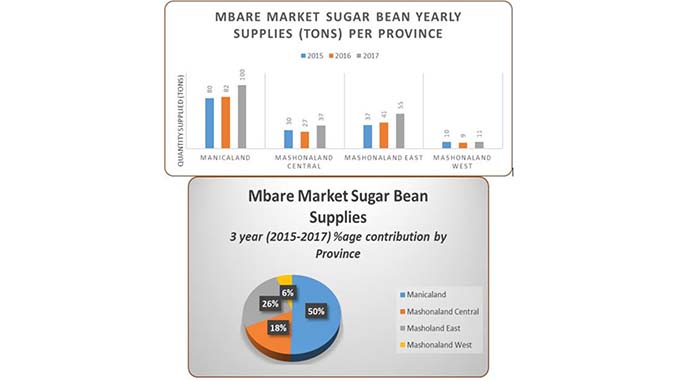How to discover your dream job

You’ve found yourself in the job market. You’re likely tempted to start polishing up your resume, looking online, networking. Stop. Before you do any of this, start dreaming.
An executive coaching client of mine recently found out his division is up for sale and he may be out of a job. While his first reaction was fear, as we discussed this, he discovered that he can use this change as an opportunity to find his dream job. I followed a similar process when I left my corporate career to pursue my dream job.
With employee engagement levels stuck at a dismal 30 percent (only about 30 percent of employees globally are fully engaged in their jobs), it’s clear that most of us aren’t in our dream jobs. Low engagement not only impacts our productivity — I believe it also impacts our well-being as human beings. When it comes to looking for a new job, start by getting to know yourself so you can bring all of who you are and what you have to offer to your workplace. Find a quiet place where you can relax and be uninterrupted so you can connect more deeply with yourself. At this point, it’s important that you connect with your authentic self so you can differentiate between what you need and what you think you need in a job (a certain salary, job title, industry or company).
Here are five questions my client and I worked through to discover his dream job.
What work energises me?
Take a deep breath (close your eyes, if it helps) and remember the last time you felt joyful, purposeful or impactful while engaged in an activity at work. Fully experience that situation again through your senses. How were you feeling? What was the activity you were engaged in? What was the impact you were having? Jot down the activities you were engaged in.
Among my executive coaching clients, what’s meaningful is often quite varied. Some people remember situations where they were solving tough challenges with an energised team. Others remember situations where they were in one-on-one settings mentoring others.
When I looked back on my most energised moments, I realised they were when I was connecting with people one-on-one helping them to grow as leaders and they experienced an “aha” moment when they saw a greater possibility for themselves. Sharing the unarmed truth that helped people grow always energised me. This led me to start a second career as an executive coach.
What contribution inspires me?
When you contribute in ways that are meaningful for you, it creates impact. It also helps you go the extra mile, enables you to take risks and persevere despite obstacles. You become more resilient in the face of failure. You’re willing to stretch outside your comfort zone for a dream that matters.
Take a deep breath. Close your eyes and imagine that you can make whatever positive impact that inspires you. What would this look like? Who would you want to benefit from this impact? Imagine this in as much detail as you can and jot down the contributions that inspire you.
What strengths do I enjoy exercising?
I believe each of us has unique superpowers, and when we connect with them we are most successful and engaged. In the situations when you felt most energised, what strengths were you exercising? Sometimes we don’t see our strengths as clearly as others do. Reach out to at least three trusted colleagues who know you well and get feedback from them on what strengths help you be impactful. There are also lots of assessments that can help you discover your strengths. A popular one I recommend to my executive coaching clients is StrengthsFinder.
What work culture do I thrive in?
Look back at your career and map out the high points when you were most fulfilled and successful. Find the times when you were being successful and enjoying yourself. What elements of the culture helped you thrive? For some people, it’s a culture where they have plenty of autonomy. For others, it’s a culture where their contributions are valued. Jot down the culture elements that help you thrive.
What are my other requirements and deal-breakers?
This is where you can bring location, compensation, benefits, work flexibility or other requirements into the mix. Your dream job is equally about being open to creating new possibilities and being clear about where you will not compromise. Think through the areas that are deal-breakers for you. It could be related to travel requirements or an industry that doesn’t appeal to you.
Now write yourself a job description of your dream job in the present tense as if it were already true. Here’s how that goes.
My dream job is:
One where I’m (list from the first question of what energises you). I am inspired by (list the contributions I am making). I am exercising my strengths of (list from the third question). I am working in an environment where (list from question four).
My other requirements are (specify other requirements important to you). My deal-breakers are (specify what are deal-breakers for you from the fifth question).
Here’s what my client created: My dream job is one where I’m inspiring people to be their very best. I’m inspired everyday by creating trusted teams where people work collaboratively and find joy in their work and I’m fostering a culture of diversity of thought, learning, growth and innovation. I am using my superpowers of building people up, recognising, nurturing, growing talent. I am working in environments that value people at core of who they are.
Once you have connected with this dream job, it’s time to start practice talking about it with trusted advisers and friends. It will also be good to create a list of questions that you may want to ask during an interview process to find out more about how the opportunity stacks up against your dream job.
You may also want to share parts of this during the interview process if appropriate. As you network, share with people your dream job so they can help connect you with the right opportunities.
I encourage you to keep coming back to this exercise. As human beings we continue to evolve and what’s important to us changes and is shaped by our life events. I wish you tremendous success in your job search and hope you will use this change as an opportunity to dream big. I hope you find what excites, energises and inspires you so you can be the leader that our workplaces need. Because what our workplaces need today are leaders who are inspired, engaged and alive. — Forbes.








Comments